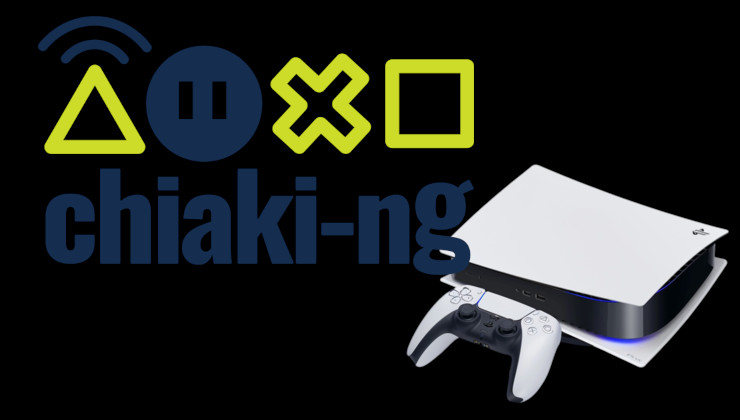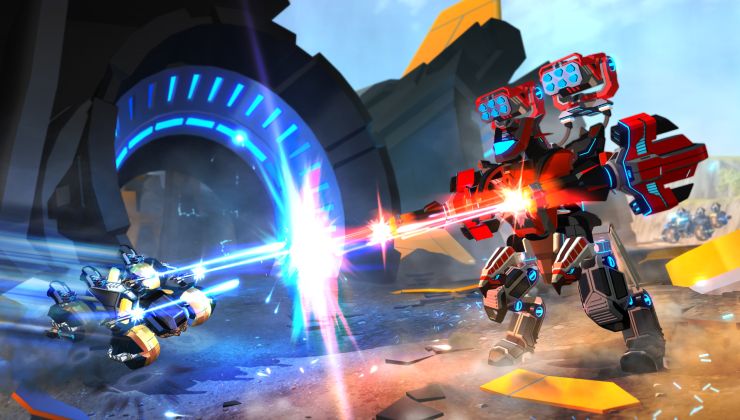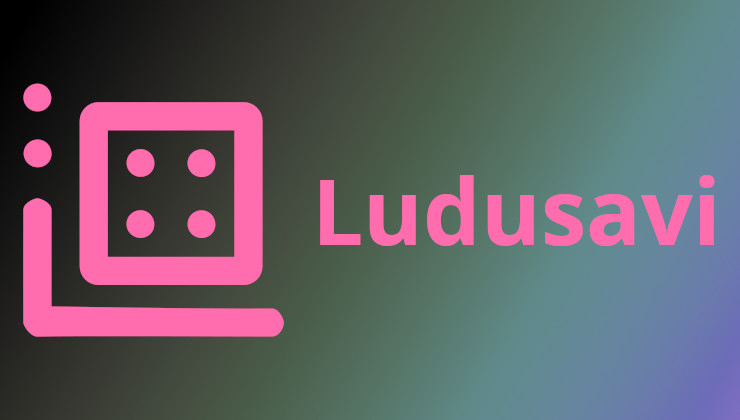A new year often brings reflection and during this introspection, the teams behind two previously successfully funded Kickstarter projects apparently found that they're incapable of finishing their respective games.
The first one, The Diviner promised to be a text-based single-player roleplaying game, in the vain of the original Wasteland, paired with a strong focus on story. It reached $18,658 of its $10,000 goal on December 21, 2013, but development was soon troubled with a lack of communication as updates grew few and far between. The launch, original slated for June 2014, was repeatedly delayed.
And now, in a post detailing what went wrong, they disclosed that the whole game may be not released at all. In a short survey, they're giving their backers several options on what they should do: abandon the game, release all content, wait for six months to re-evaluate the situation then, bring in volunteering backers as writers or run another crowdfunding campaign. Of course, none of them are ideal.
The second failed project is Dysfunctional Systems, a Ren'Py based visual novel series about student "mediators" travelling between different worlds. The first part of the series, Learning to Manage Chaos was already available both on their own website and on Steam prior to the Kickstarter campaign, so with no surprise they got $67,450 of their $49,000 goal. Development seemed to chuck along swimmingly, as the updates detailed their progress frequently.
Unfortunately, they kept a lot of the problems behind the curtain under wraps and have to call it quits now, completely halting production.
A personal pondering on the problems behind the failures
As can be read in their updates, both projects are plagued by similar issues: mismanagement and underestimation of the work, especially for extended scope due to stretch goals. Both teams were inexperienced in how to manage the development of a game on a non-volunteer basis. People have been overpaid or even paid while not working on the game, there were no binding contracts and insufficient schedules. Money that seemed a lot at first quickly drained. When the work before you appears insurmountable, pressure builds up and the team loses all your motivation. In the case of The Diviner, the project lead even vanished with the funds!
All that is very unfortunate and could probably have been avoided if a person with management experience had been in the team. Strict schedules need to be created and contracts drawn up so that team members are only paid for services rendered. The money needs to be properly budgeted before any of the works starts. Yes, sure, you may lose some of that friendly, volunteering atmosphere, but you are essentially working for that Kickstarter money now.
Another thing that I find very important: communication. If you have troubles, tell you backers. Give frequent updates on your progress, roadblocks you hit, systems you implemented. Even if the update is just a collection of "we're still doing X, waiting on Y, haven't yet fixed Z". Keep the people who gave their money to you in the loop of development process. While both of these projects weren't the worst offenders here, I have seen better examples as well.
Despite my harsh words, I do not bear any of the people involved in these teams any ill will. Fail early, fail often is a good maxim for learning, and I do hope they learn from their failure. And likewise, that their public failure provides an insight for other people thinking about starting a crowdfunding campaign, preventing them from making the same mistakes. In either case, I wish all of the people involved good luck in the future.
Disclaimer: I backed The Diviner at the $10 level. I don't intend to ask for a refund, but I personally would very much appreciate if maybe the game and all its resources were released under free software / free culture licenses, to give it a chance as a community-driven FLOSS project. I did not back Dysfunctional Systems, but I did buy and play the first episode on Steam.




 An idiots guide to setting up Minecraft on Steam Deck / SteamOS with controller support
An idiots guide to setting up Minecraft on Steam Deck / SteamOS with controller support How to install extra software, apps and games on SteamOS and Steam Deck
How to install extra software, apps and games on SteamOS and Steam Deck
It is real easy for some friends to get together and come up with a "master plan" after having a few beers and then set out to execute said plan the next day. Quickly they find they are in over their heads and things end up fizzling real fast. I've been there with countless genius business ideas that seem fool proof with an ABV of 1.2 ;)
I agree with OP that at the very least all game assets should be made FOSS and let the community continue if they want. I don't really know much about kick starter.. but what does happen when this kind of thing happens? is there an easy avenue to recoup the $$ you pledged or is it like betting? You bet poorly and lost?
Even Ben "Yahtzee" Croshaw falls under the misapprehension that crowdfunding somehow allows a game to be successful before it is even out, even though under that same logic every single AAA title from EA or Activision can be said to have been a massive success just as soon as the publisher's initial cheques start rolling in.
Perhaps it is partly the fault of websites like Kickstarter for not elaborating on this enough, but it really is not that difficult a concept to understand.
This.
You have to be smart when investing in a kickstarter product, and even the smartest investment can go wrong. Investment always has risks, and changing the financial backing of 1 person into the backing of thousands of people doesn't change that.
If you are a prolific user of kickstarter then you should probably get used to getting burned, whether that is a game not appearing or promised features not being implemented.
On the whole, however, crowd-funding has had a really positive impact on the games industry (amongst others), allowing games to be made that would never have seen the light of day otherwise. These are usually games made with a passion and creativity that big publishing houses have a tendency to sap from the industry.
My favourite game of 2014 was a kickstarter funded game, Wasteland 2. My most anticipated game of 2015 is another, Pillars of Eternity. I've been burned a couple of times but I still consider my investments worthwhile.
anyways, the soutpark episiode about kickstarter http://www.southpark.nl/clips/s4v9pg/washington-redskins-kickstarter should be a must watch for many who got no idea about what your really do when you donate/support a kickstarter.
I mean, if you're really into the AAA-titles and you love great graphics and rather the same gameplay in each and every iteration, crowd-sourcing probably will not be your cup of tea. (I say this without any offense, just to be clear!)
If you'd like to try out new gameplay mechanics crowd-sourcing is a good way to support many new ideas, that are simply not being made with the traditional model, because they are risky and hence may cost a lot money, not to mention their initial cost vs. "copy/paste features".
Regarding the advertising: I think that people today are used to literally few to none consequences. If you fall for an advertisement and the endproduct doesn't deliver, you have to learn to be more careful. That's part of life, learning that hitting a cactus with your bare hand hurts.
It's not like you're forced to invest thousands upon thousands of bucks, but if you're greedy and invest in the wrong idea, well... shit happens.
Like was said numerous times: It's an investment and those always come with a risk. That's the nature of an investment. If this is not what you want, just don't use it.
Most games/product can be bought later on, if successfully funded and developed/created anyway.
What I do not like about kickstarter, are empty promises like when I support a game that claims to support Linux (at a certain milestone) and it's funded (along with the milestone) and then they release the game for Windows and maybe MacOS and are done with it, because the engine they used or some library is not compatible with Linux etc.
That's something I really hate, but I learned my lesson from it too :)
Looks like "many who got no idea about what your really do when you donate/support a kickstarter" are screwed ;-)
just block this anoying page not avaible... ;)
or use menu -> devoloper -> insector and delete the node.
+1 realese contends under gpl
- The people working on the project weren't competent enough
- Some of the people behind the project just took their share of the money and go away
And they all have one thing in common, problems were never mentioned before the final update (if there is a final update, sometime it's the absence of updates for a long time that give away the fact that the project is dead).
It's most of the time hard to predict if a project will fail, my advice is that unless you can be 100% sure that the project will succeed be always aware that the project can fail and so never put too much money on it.
Also when a project fail, ask for a refund if you want one because if you don't ask you have zero chance of having one.
But I am quite offended by a lack of communication. The reason I back a project is because I am hyped about the project's idea. I want to know about your progress, I want to know where the roadblocks are and how you're going about resolving them. I want to see how the sausage is made, even in detail if possible!
If I weren't that interested, I wouldn't have backed the campaign in the first place. I would have just waited it out and bought the finished thing after release.
"vain" - typo, should be "vein"?
While there is always risk in crowdfunding, it is quite annoying and disappointing to have a project flop on you when you place your trust in the people executing them.